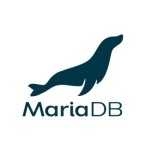We primarily use SAP HANA for ERP in the manufacturing and delivery industries.
What I like best about SAP HANA is that it's faster than Microsoft SQL Server.
The SAP HANA interface has room for improvement because it takes more work to manage than the Microsoft SQL Server interface.
Nowadays, you'll see more no-code tools in the market with a drag-and-drop feature, and that's what I want to see in SAP HANA in the future.
I've been using SAP HANA for six months.
SAP HANA is a stable product. Its stability is eight out of ten.
The scalability of SAP HANA is a six out of ten.
My company used to work with Oracle Database version 10.2, but migrated to Microsoft SQL Server and now also using SAP HANA because Oracle Database is expensive, plus it requires users with a higher level of experience on Oracle Database.
The initial setup for SAP HANA is so-so. It's not easy, yet it's not so difficult. I'm rating its setup as six out of ten.
The total time it takes to deploy SAP HANA depends on the type of integration. I have a lot of integrations where one integration gets deployed within thirty minutes, while another takes more than two days to deploy.
The pricing for SAP HANA is high. It was expensive. You have to pay a lot, and it's the highest-priced solution in the local market, though when you compare it to other tools in the global market, the price is similar.
You pay a lot for the license, and you also have to pay for some add-ons.
I'd rate SAP HANA licensing fees as two out of ten.
My company uses SAP HANA.
My company has SAP Business One version 9.3 that integrates with SAP HANA, but I haven't worked much on SAP HANA yet.
I'm a user of SAP HANA, not a partner.
Around thirty people, mostly technicians, work on deploying SAP HANA. The solution requires five to six engineers for maintenance.
My company has eighty-eight SAP HANA licenses used mainly by the end-users, for example, managers.
I'd tell anyone looking into using SAP HANA that it's a good tool but expensive for smaller-scale companies.
On a scale of one to ten, I rate SAP HANA as ten because it's a good tool, and I like its technology.



















